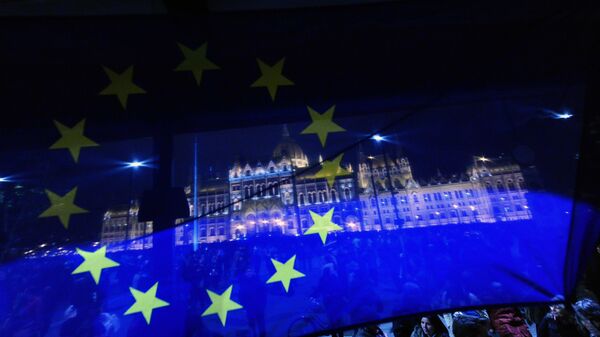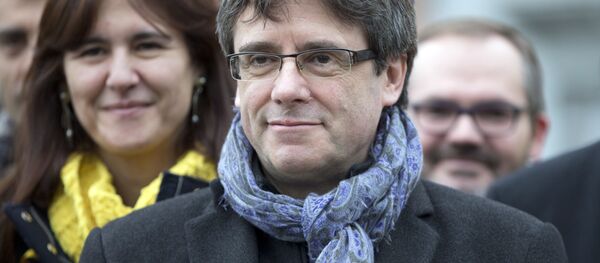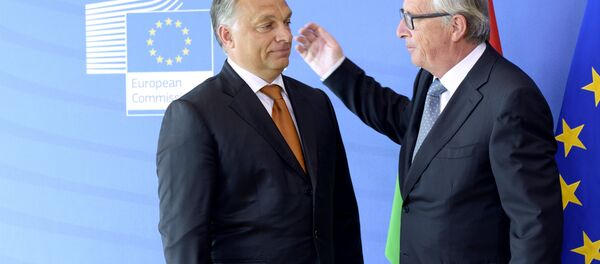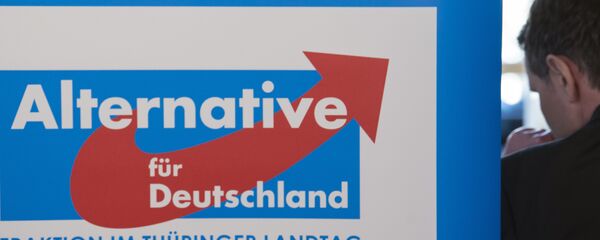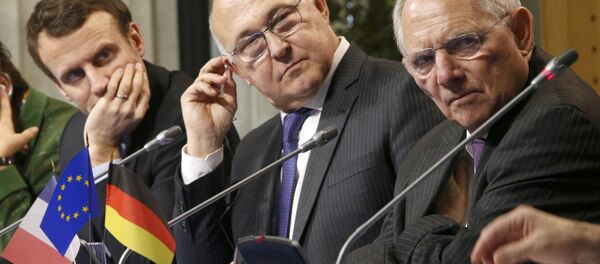Sputnik has discussed this with Dr Chris Reynolds, Associate Professor in Contemporary French and European Studies at Nottingham Trent University.
Sputnik: How much do the results of the poll reflect the real state of affairs here? Is it, indeed, likely that we're going to see the greater number of seats in the EU Parliament now occupied by right-wing parties? What are your thoughts?
Dr Chris Reynolds: It doesn't really come as that much of a surprise to me that the polls are showing that these sort of right-wing parties are ahead and are likely to gain quite a lot of seats in the European Parliament. It's kind of been in the air for some time; and everyone needs to take into consideration the nature of European elections which are often used within the national framework as a means [by] which the population can almost punish the political elite.
Sputnik: Why is the right-wing representation predicted to grow? What prompts the popularity of those parties? I mean, we've seen a lot of populism obviously advance itself since President Trump and the Brexit vote; but what's the basic understanding now as a phenomenon?
READ MORE: ‘It's a Failed Structure' — Political Commentator Calls for a Shake-Up of the EU
These crises almost inevitably lead to the rise of nationalism as people have an almost inward turn and start to think of their own turf before thinking of the others. It's no surprise to me that nationalist right-wing parties are taking advantage of this; this won't be the first time in history that this has happened.
Sputnik: We've got Annegret Kramp-Karrenbauer, the leader of the German CDU party, now saying that she's rejected the idea of European centralism promoted by Emmanuel Macron. What implication could the difference of opinion between these two major EU countries have on the bloc's politics and strategy moving forward from your point of view?
Dr Chris Reynolds: I think that's fascinating. The letter that Macron put out tried to interpret what's going on there. That in itself is quite interesting and it's clearly an attempt by Macron ahead of European elections to kind of try and remind people of the positives of the European project.
And when the Franco-German axis, the engine room, breaks down, the European project seems to stagnate and certainly has some difficulties. So, seeing, the potential for strong tension between the French and the Germans over Macron's call for a renaissance of the European project is not something that fills me with optimism; but it is interesting to think about what Macron is potentially doing with that letter.
READ MORE: EU's EPP Party Launches Exclusion Procedure Against Hungary PM Orban — Reports
It's clear that Germany is — you know, Merkel's coming to the end of her term and Europe is going to be requiring some new leadership; and ever since Macron became the French president, it's clear that he has been trying to position France in such a way that France can reassert itself as the leader of the European project, and he certainly — as is evidenced with this letter — sees himself as maybe assuming the role that Merkel had assumed beforehand. So, it's interesting times in terms of the leadership of the European project and the relations between France and Germany.
The views expressed in this article are solely those of Dr Chris Reynolds and do not necessarily reflect the official position of Sputnik.
